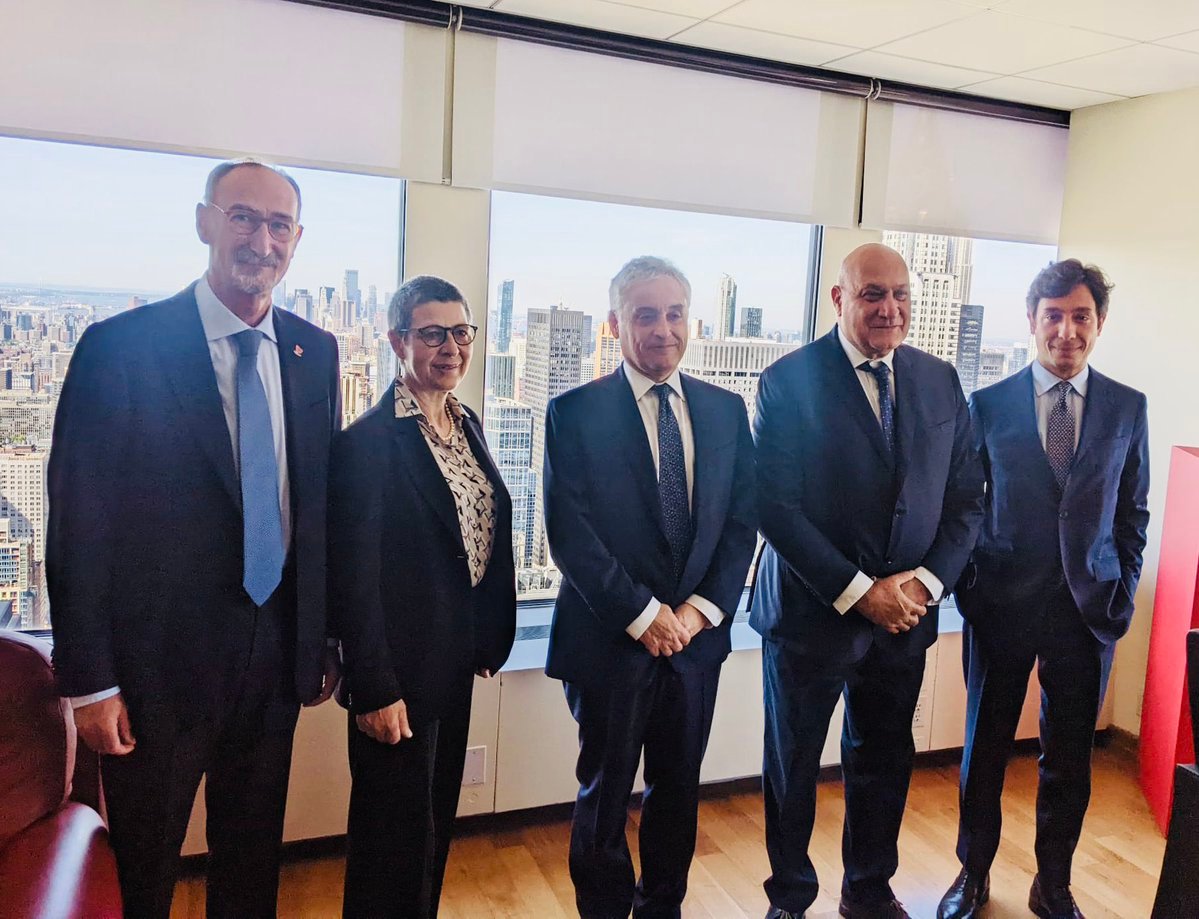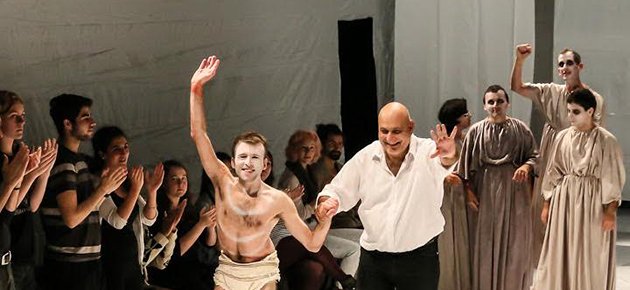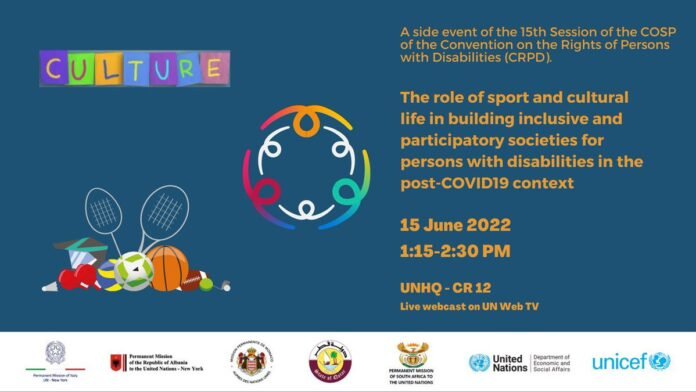NEW YORK, 15 JUNE – The work of Italian Ngos Progetto Filippide through based-sports programs for children with autism and Teatro Patologico, which uses theatre-therapy for people with psychic disabilities, was showcased today during a side-event of the 15th Session of COSP 15, the Conference of States Parties to the Convention on the Rights of Persons with Disabilities (CRPD), which is being held in New York.

“Italy is always at the forefront in the promotion of the rights of persons with disabilities”, said Permanent Representative of Italy to the UN, Maurizio Massari, opening the panel: “Their active participation and social inclusion are the focus of our international agenda in the field of human rights and development cooperation, to guarantee that ‘no one is left behind’ as the UN’s 2030 Agenda asks of us”. The event, organized by the Italian Mission to the UN in New York together with the UN agencies UNDESA and UNICEF and the Permanent Missions of Albania, Monaco, Qatar and South Africa, examined the role of sport and cultural life in building inclusive and participatory societies for people with disabilities in the post-COVID 19 context: “A context that worsened the physical, cultural and informative barriers that still stand in the way of the full enjoyment of rights by people with disabilities”, Massari stressed, underscoring the need for a change of paradigm on disability promoted by the UN Convention: “Moving from an approach based on medical treatment, to a broader one based on human rights”.
The event focused on the contribution of civil society organizations in the design and implementation of inclusion strategies, sharing lessons learned and success stories with a focus on sport and theatre as tools for inclusion. Sport and culture are indeed vehicles of peace, inclusion, social cohesion and democracy.

The panel identified specific challenges faced during the pandemic by people with disabilities and good practices put in place to promote a significant participation of disabled people in the economic and social reconstruction of the post-pandemic.
Progetto Filippide was born in Rome and has made sport and running the fundamental tools to help families and autistic children. The spirit of the association has always been to demonstrate how sport can become a functional tool for people with mental disabilities to acquire self-esteem, improving personal autonomy and social integration. Progetto Filippide has always been an experimental pole of training techniques, in particular for athletics and swimming. During the panel, its delegate referred to the consequences of the Ukrainian war, highlighting the recent assistance provided to Ukrainian refugee children with autism.

The Teatro Patologico Association was founded in 1992 by Dario D’Ambrosi. The Ngo has been dealing since its early days with a unique and universal work, that is finding a contact between theatre and young people with serious mental problems. Both Teatro Patologico and Progetto Filippide had been at the UN for the last time in 2019, prior to Covid lockdowns. Two years earlier, on the occasion of the International Day of People with Disabilities 2017, Teatro Patologico had brought to UN Headquarters its own “Medea”, staging also at the Teatro Cafè La Mama in New York and the Wilton’s Music Hall in London.
In 2016, in collaboration with the University of Rome Tor Vergata and the Ministry of Education, Teatro Patologico opened the world-wide first University Course of “Integrated Theatre of Emotions”, aimed at people with physical and mental disabilities. D’Ambrosi’s method is also studied at New York University, Akron University in Cleveland, and Hayward University in San Francisco. (@OnuItalia)

